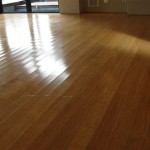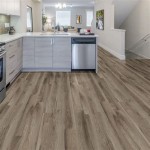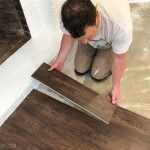Is Vinyl Flooring Toxic in 2024? A Comprehensive Guide
Vinyl flooring has become increasingly popular in recent years due to its affordability, durability, and wide range of design options. However, concerns about the potential toxicity of vinyl flooring have also emerged. In this article, we will explore the essential aspects of vinyl flooring toxicity in 2024, examining the potential health risks associated with its materials and manufacturing processes.
Understanding Vinyl Flooring Construction
Vinyl flooring is typically composed of several layers, including a backing made from materials such as felt or fiberglass, a core layer made from polyvinyl chloride (PVC), and a top layer known as the wear layer made from materials like urethane or ceramic.
Potential Health Concerns Related to Vinyl Flooring
Vinyl flooring has been associated with the release of several potentially harmful chemicals, including:
- Volatile Organic Compounds (VOCs): VOCs are emitted by many building materials, including vinyl flooring, and can irritate the eyes, nose, and throat, as well as potentially contribute to long-term health issues.
- Phthalates: These chemicals are used to soften PVC and have been linked to developmental and reproductive toxicity.
- Formaldehyde: Formaldehyde is a known carcinogen and can be released from some vinyl flooring products.
Addressing Toxicity Concerns in 2024
Industry efforts and regulatory initiatives have been made to address the potential toxicity of vinyl flooring. In 2024, we can expect the following trends:
- Low-VOC Emissions: Many vinyl flooring manufacturers now offer products with low VOC emissions, meeting stricter standards.
- Phthalate-Free Options: Phthalate-free vinyl flooring is becoming more widely available, reducing the risk of exposure to these harmful chemicals.
- Improved Manufacturing Processes: Advancements in manufacturing techniques have allowed for the reduction of harmful emissions during vinyl flooring production.
Choosing Safer Vinyl Flooring Options
When selecting vinyl flooring, consider the following tips to minimize potential health risks:
- Look for Low-VOC and Phthalate-Free Products: Opt for vinyl flooring products that meet low-VOC and phthalate-free standards.
- Ventilate Properly: During and after installation, ensure proper ventilation to reduce VOC emissions.
- Consider Alternative Flooring Options: If you have concerns about vinyl flooring toxicity, explore alternative flooring materials such as hardwood, laminate, or ceramic tile.
Conclusion
While some concerns remain, vinyl flooring toxicity has been addressed through industry efforts and regulatory initiatives. In 2024, consumers have access to a wider range of low-VOC and phthalate-free vinyl flooring options. By choosing safer products, ventilating properly, and considering alternative flooring materials when necessary, you can minimize potential health risks associated with vinyl flooring.

A Damning Report Flooring S Dirty Climate Secret Yes It About Vinyl Wood Floor Business

Vinyl Flooring Pros And Cons Forbes Home

Is A Vinyl Floor Considered Toxic Timber Installation

Toxin Free Luxury Vinyl Plank Flooring Healthy House On The Block

The Disadvantages Of Vinyl Plank Flooring A Guide Reallyfloors America S Est Hardwood

Toxin Free Luxury Vinyl Plank Flooring Healthy House On The Block

6 Vinyl Flooring Myths Get The Facts From Our Experts Inc
The Ultimate Guide To Non Toxic Flooring Atkinson Kirby

The Ultimate Guide To Non Toxic Flooring Atkinson Kirby

Why I Luxury Vinyl Flooring Lvt Lvp Bay On A Budget
See Also







